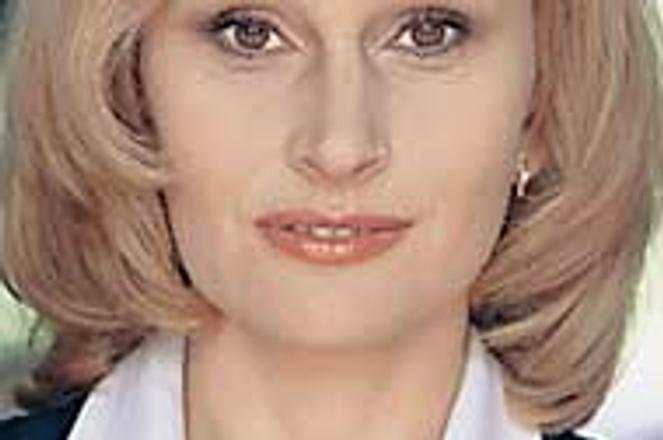SDKÚ's Zuzana Martináková will be one of the government's highest-ranking women.photo: TASR
THE PROPOSED lineup of Slovakia's new right-of-centre cabinet includes no female ministers, giving the country a purely male executive branch.
The male-only list of cabinet nominees has moved female organisations and some current cabinet ministers and politicians to call for the introduction of quotas, to enable greater representation of women in top political jobs.
Women have traditionally been a minority both in parliament and in the previous three cabinets. The outgoing cabinet initially had three and later just two female ministers out of a total of 20 members.
Although there are no discriminatory legislative barriers preventing women from entering public life, men still dominate in public offices. Consequently, the lack of female candidates for the new cabinet was not unexpected.
"It was no surprise that [the proposed new cabinet] turned out to be without women," Zuzana Martináková, vice-chair of the Slovak Democratic and Christian Union (SDKÚ) told The Slovak Spectator.
"The coalition parties' election candidate lists and profiles of their top candidates suggested that the ministerial nominees would be men."
Martináková was considered a top candidate for the position of Labour Minister in the new cabinet, but was later nominated as one of the four deputy speakers of parliament. She is expected to be one of only two female officials to take a prominent public post following the September elections.
"I don't think it's good that there are no women in the cabinet, because male ministers are less likely to focus on issues that would help women. But the cabinet negotiations were very complex, and party interests were the focus of attention," said Martináková.
Women politicians and activists agreed that quotas should be introduced in order to increase female representation in top politics.
"Women in Slovakia need quotas, and they need them fast. Only with them can they gradually work their way to equality," said Belgian senator Anne-Marie Lizin at an October 3 "Equality of opportunities - Slovakia and the European Union" conference in Bratislava.
The introduction of quotas is a sensitive issue in Slovakia because of the country's communist past, when the ruling regime enforced a rule of 30 per cent female representation in the legislature. Some experts say that was more about appearances than true equality.
"At that time, female MPs were looked down upon, and it was said that their job was 'to be a woman' in the legislature," said sociologist Magdaléna Piscová with the Slovak Academy of Sciences.
But an increasing number of prominent women are voicing their support for the introduction of quotas. Mária Kadlečíková, deputy prime minister for European integration, who in the past opposed quotas, said she was beginning to see the necessity of the measure.
"After these elections I'm starting to change my mind, and I think that quotas will have to be introduced," said Kadlečíková.
Sociologists say that the traditional division of roles - with women still considered to be the primary home-makers - and a lack of services to ease women's entry into leading positions, are the central reasons for the continuing dominance of men in public and business offices. In addition, some people consider politics to be an unsuitable career choice for a woman.
"Many people believe that decent women should not be involved in politics," Martináková told The Slovak Spectator prior to the September 20-21 elections.
"Using my position in parliament, I will do all that I can to change that situation."
Her new coalition colleague from the Christian Democrats, MP Marcela Pčolinská, agreed that it was time for a change: "We must get used to the fact that women need equal conditions. It would help us to change the way we look at women in public life."


